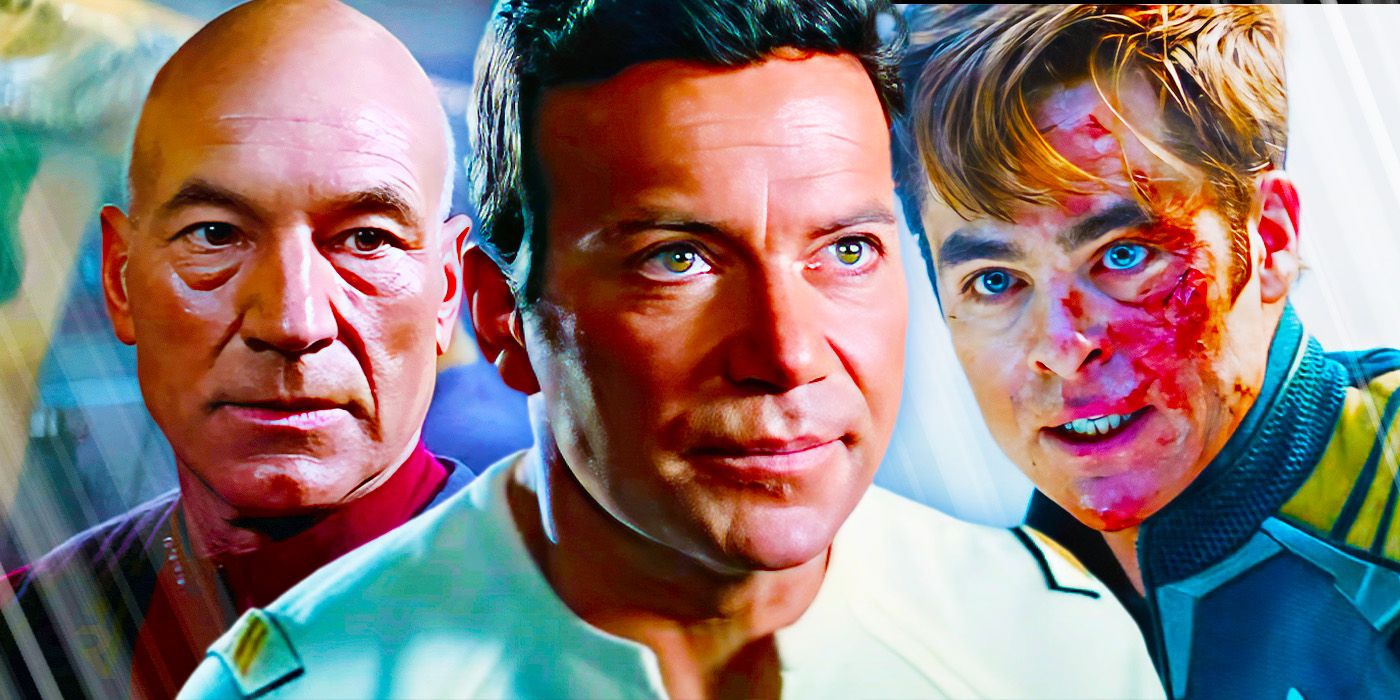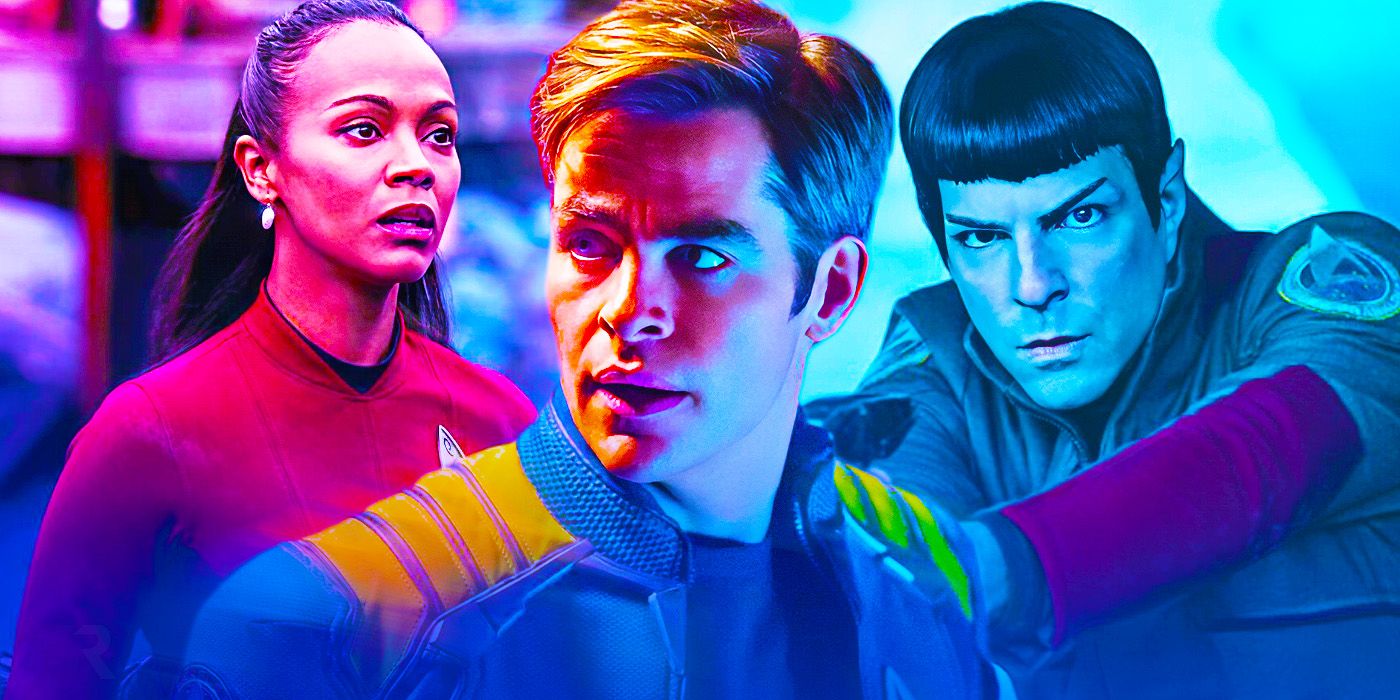Summary
- J.J. Abrams reinvigorated Star Trek with the Kelvin Universe, introducing an alternate timeline and respectfully preserving the franchise's legacy.
- The movies offered character origin stories, significant character development across the cast's main USS Enterprise crew, and action-packed drama.
- The reboot influenced later shows, leading to a new era of "Modern Star Trek."
J.J. Abrams' Star Trek (2009) rebooted the stalled science fiction franchise and cleverly introduced a new alternate timeline as part of Star Trek's multiverse. Establishing the Kelvin Timeline alongside Star Trek's Prime and lesser-seen Mirror Universes, Abrams intelligently sidestepped the issue of inevitable predictability while preserving Star Trek's already established and canonical legacy. Minor changes to the characters and their respective inherent behaviors echoed grander, more-encompassing divergences in the Kelvin Timeline's course, with many of the original facets somewhat reversed. The movies made respectful reference in multiple ways to the franchise's other shows, movies, and series, ultimately inspiring a new era of modern Star Trek.
Introducing a younger, less experienced Captain James T. Kirk (Chris Pine) and the cast of the Kelvin Timeline's USS Enterprise, J.J. Abrams' Star Trek movies provided character origin stories and significant growth for the main characters over the (so far) span of three films as they come together and save worlds. To positive and mixed responses, the Kelvin Timeline movies demonstrate a different tone from the original Star Trek. Abrams' films eloquently update previously established viewing experiences for a modern Marvel Cinematic Universe-experienced audience and pair IDIC-inspired, retro vibes with a stream of high-energy blockbuster action sequences. Fifteen years on, here are ten positives you only notice rewatching J.J. Abrams' Star Trek movies.
I.D.I.C. stands for "Infinite Diversity in Infinite Combinations" and is a foundational tenet of Vulcan philosophy.

Every Star Trek Movie In Chronological Order
With 13 entries in the Star Trek movie series from 1979-2006, there are a couple of ways to watch the films chronologically.10 J.J. Abrams' Star Trek Movies Were A Fun, Relevant Addition To The Franchise
Star Trek (2009), Star Trek Into Darkness (2013), Star Trek Beyond (2016)
J.J. Abrams' Star Trek movies successfully rebooted the franchise's stalled run of feature films, bringing fun and a fast-paced flair to the space-faring show's modern audiences. Blending what went before with a future yet to come, the movies' distinctive style and epic feel reimagined classic characters in a blockbuster setting. Building on Star Trek's previous legacy and established events, J.J. Abrams' movies established an alternate parallel timeline and opened a future of possibilities where anything could happen. The movies' successes led to a new era of Star Trek on the small screen, further developing legacy characters and progressing the franchise's multiverse timeline, with further films currently in the works.
9 J.J. Abrams' Star Trek Movies Blended The Old With The New
Abrams' Star Trek Movies Cast Actors From Star Trek: The Original Series
J.J. Abrams' Star Trek movies carefully honored established franchise history while simultaneously becoming something entirely new - reimagining Star Trek's core values of hope, optimism, a sense of family, and the USS Enterprise as home. A hybrid of these mixed realities, Abrams' updated settings and approach to storytelling cast previously established characters - and actors - into a familiar setting in an alternate realm. Among multiple nods to the past, Star Trek: The Original Series actors were cast to support the new crew. Including Leonard Nimoy as the Prime Universe's Ambassador Spock allowed for a dignified and respectful passing of the baton, simultaneously acknowledging that what went before still mattered.
Majel Barrett provided the voice of the USS Enterprise's onboard computer in Star Trek: The Original Series and Star Trek (2009), as well as several of the franchise's other shows and movies.
8 J.J. Abrams Mixed Big Action With Significant Character-Based Drama
Chris Pine's James T. Kirk Transitions From Civilian To Cadet To Captain
Star Trek (2009) established a precedent for character-driven storytelling alongside breathtaking action sequences and bold big-screen drama, the film's conflict coming primarily from the crew's struggle towards formation. While Star Trek Into Darkness admittedly missed the opportunity to capitalize on creating an alternate timeline and create something entirely new, it still focused on character growth and moral themes in longstanding Star Trek tradition alongside tense twists and impressive cinematographic visuals. Star Trek Beyond felt like a great, old-school episode spanning the length of a feature film. With Abrams' movies leaning into the sensational and exciting, the focus on an action-heavy narrative driven by significant character drama is dynamic and refreshing.
7 J.J. Abrams Brought Star Trek To A New Audience & A New Generation
Star Trek (2009) Allowed An Accessible Entry To The Franchise
Star Trek (2009) introduced the franchise to a new, modern audience of all ages, offering an accessible entry point to an increasingly complex timeline of movies and shows. Directly leading to the franchise's return to the small screen, Abrams' Star Trek movies offered viewers dramatic character conflict and daring, meaningful science-fiction. The film's tight script and keen pacing provided an exciting and audacious experience with Star Trek's first and most famous crew. Committed fans and non-fans alike came together to enjoy Star Trek's latest installment, with those who hadn't previously seen it and those too young going on to discover the franchise's notable earlier series.

